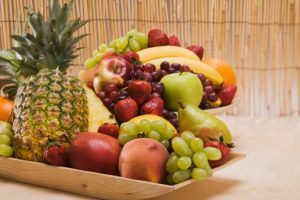
Much of the produce we eat has been treated with pesticides, which is why it’s encouraged to thoroughly wash your produce. The Environmental Working Group (EWG) rates consumer products each year to determine their level of chemicals and toxins and rates them based on safety for consumption.
In 2017, the EWG found that 70 percent of 48 conventionally grown produce was contaminated with pesticide residue. Worse yet, much of these pesticides remained even after proper washing, meaning you’re still ingesting chemicals without knowing.
In Canada, rules against pesticides are far stricter and rigid than in America even though they still purchase much of their produce from the U.S.
What is safe to eat and what should be purchased organic? The EWG compiled a list of 12 fruits and vegetables, which they recommend purchasing organic based on the produce’s test scores of chemicals and toxins. They also compiled a list of the top 15 safest foods to consume with little to no pesticides that can be purchased non-organic.
The Dirty Dozen
- Strawberries
- Spinach
- Nectarines
- Apples
- Peaches
- Pears
- Cherries
- Grapes
- Celery
- Tomatoes
- Sweet bell peppers
- Potatoes
The Clean 15
- Sweet corn
- Avocadoes
- Pineapple
- Cabbage
- Onions
- Sweet peas (frozen)
- Papayas
- Asparagus
- Mango
- Eggplant
- Honeydew melon
- Kiwi
- Cantaloupe
- Cauliflower
- Grapefruit
The EWG did not consider if a produce item was non-GMO, so even though an item may be pesticide free, they may still be GMOs. Ensure you read product labels to be sure.
How to Reduce Your Intake of Pesticides
Aside from buying produce organic, there are other ways you can reduce your intake of pesticides. For starters, when washing produce, use a soft brush and use fruit and vegetable-specific soap. Always remove outer leaves, as that is where the bulk of pesticides will be found. Lastly, cooked food items have fewer pesticides, but keep in mind some foods lose their nutritional value when cooked.
Related:
Why organic food really is better (and not as expensive as you think)
5 foods you should always have in your refrigerator